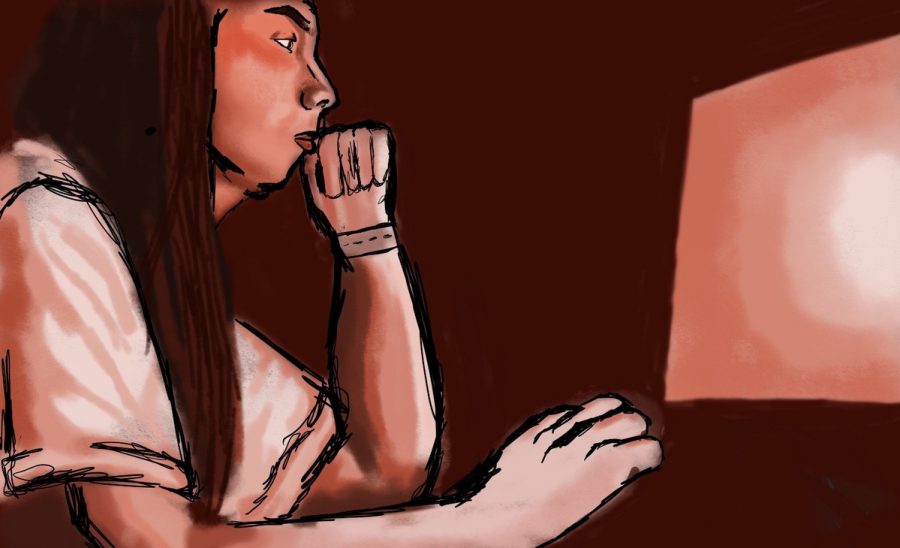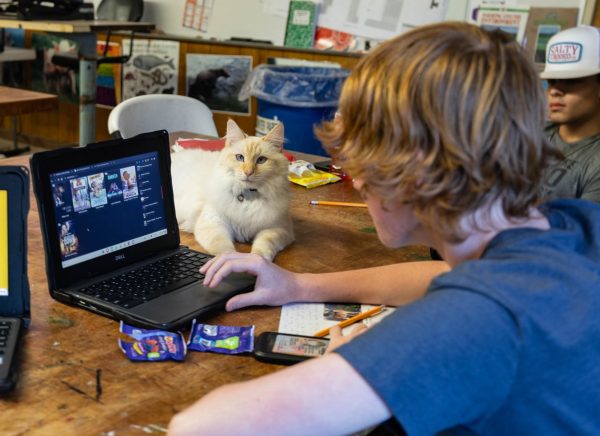The mental impact of being remote
What does being remote do to your mental health
Students are finding the act of keeping up with online school mentally draining. While many students have been told that they don’t face the same on campus stress, but many students disagree.
December 21, 2020
It’s 11:59 P.M., the computer reads “12 MISSING ASSIGNMENTS” while you frantically try to turn them all in. Your heart races and your breathing becomes louder as the thoughts of failure linger in your head. You’re tired, burnt out and just want some sleep. It feels like time passes so quickly, and there is no balance between working and resting. This is the reality for some students that are remote.
Coronavirus has completely messed up the flow of our daily lives. Being in high school and being remote has been deemed challenging. Many people also speak of being overwhelmed by assignments and having anxiety and bouts of depression while being remote. They are afraid to speak out because they might be deemed lazy because it is “just computer work.”
“It affected me really badly because I was always failing, but I couldn’t really get motivated to start working again,” junior Rhyann Wilson said. “I was way too comfortable. The assignments started piling up, and every time the notification came up on my phone, I had a small anxiety attack. It was like I knew I was going to fail, so why try? At some point I stopped drawing. That’s what makes me happy, but now I really haven’t been wanting to do anything.”
This pandemic has already dramatically changed the lives of many students. Some have had to pick up extra jobs while others are in isolation with barely any human contact for hours and days on end. Since school closures and quarantine started, the need for mental health treatment has skyrocketed.
This year, everything’s virtual, so I was thinking, ‘This is probably what college is going to be like, so why would I even go to college if I’m just gonna be at home?’
— senior, Xander Cabanayan
During this pandemic, 12% of students’ mental health has worsened, and 71% of remote students have problems staying focused on school and work. With suicide being one of the leading causes of death and one of the biggest factors is the depression and isolation the students are feeling.
“I was confused and didn’t have someone show me what I was doing wrong,” senior Xander Cabanayan said. ”On top of that, I had a lot of issues at home that really stressed me out. It put me into this pit of depression and basically erased my motivation or dreams to do anything. I would want to go to college for the experience instead of just being at home.”
Many students have lost their motivation to do school work because it’s like trying to put a bandaid on a broken wall.
According to the National Education Association, 70% of teens will experience depression and anxiety. With factors of loneliness, distractions, caring about others and political concerns, it makes it extremely hard to be positive and motivated to do work. This is a much needed time to rethink our education system for the betterment of students.
“Remote learning has made me more stressed than I ever have been,” sophomore Kristopher Simington said. “I have to go to therapy because of the stress. It’s honestly so overwhelming and it makes me feel like a complete failure. The mere thought of school makes my heart start pounding. I am so tired, and it is so hard to even try to get work done because of how crippling my anxiety is. My assignments start piling up, and I really have no idea where to start. I really don’t even know if I want to go to college anymore.”




















